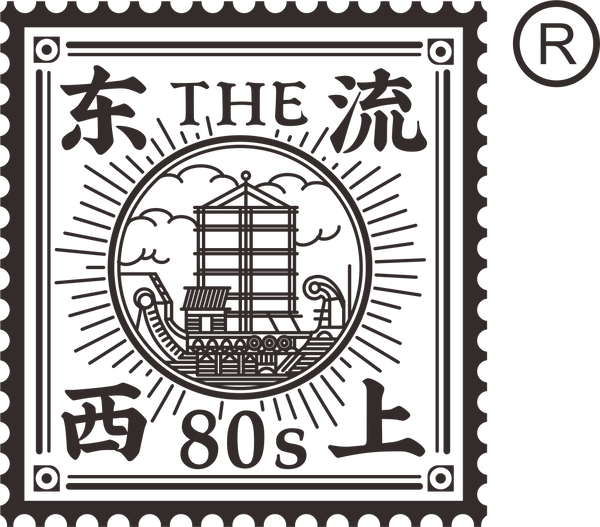Is Black Tea (Lapsang Souchong) Good for Health?
Share
Click here to view the premium black tea sold at 'The 80's Tea' store.
Black tea, also known as Lapsang Souchong, has multiple benefits for overall health including heart health, brain function, gut health, and the immune system.
How does Black Tea (Lapsang Souchong) help with heart health?
Tea has a higher antioxidant level than any vegetable and fruit, and it is well known for removing free radicals and decreasing cell damage, eventually promoting overall health.
Groups of polyphenols are important elements for antioxidants that can only be found in tea. These groups include catechins, theaflavins, and thearubigins, which are all beneficial for heart health. Studies have shown that consuming at least one cup of tea daily will reduce the risk of cardiovascular disease including decreased cholesterol level, blood sugar, and high blood pressure.
A study was conducted on 365,682 people aged 50-74 years old, each with a different type of disease history such as cancer, diabetes, hypertension, cardiovascular arterial disease, etc. It studied the association of the disease with drinking tea and coffee. The study found over 11 years, that those who drank more than 2 cups of tea per day had a 32% lower risk of stroke, and 28% lower risk of dementia, as well as a lower risk of poststroke dementia compared to those who did not drink tea.
Another study also shows that black tea can lower insulin resistance, increasing insulin stimulation to maintain a good blood sugar level. (Information from National Library of Medicine, the United State).
How does Black Tea (Lapsang Souchong) help with brain function?
An important yet often overlooked chemical found naturally in tea is theanine. Theanine has a great impact on mood alertness and focus and provides more stable energy than coffee. Clinical Phytosciences have proved that consuming at least 250ml of black tea can improve our cognitive performance which improves memory, reduces the number of errors in various cognitive tasks, and speeds up cognitive processing such as improved speed of attention allocation, and visual searches. Theanine creates the positive relaxing mood that people feel when drinking tea.
For those who find it hard in focusing consistently, black tea will be more recommended than coffee.
How does Black Tea (Lapsang Souchong) help improve gut health?
The process of black tea adds polyphenols which provide a significant health benefit. It helps maintain a healthy gut by promoting the growth of good bacteria and inhibiting the growth of bad bacteria. It contains antimicrobials to clean up the harmful substance in the gut to improve and repair the digestive system in a gentle way than any other type of tea.
Black tea is highly recommended for meat lovers who consume fewer vegetables and fruit to improve digestion and gut health. It is also suggested to have a cup of black tea after a big meal or if there is more food intake, to assist the digestive system in digesting and prevent bloating.
From a herbalist and Chinese medicine perspective, a healthy gut is an important basic condition for many diseases, as it is the path of transferring the nutrition that the cells and our bodies need. Tea needs to be brewed with a relatively high (95-98 ℃) water temperature and served hot or at least warm. Having cold or overnight black tea doesn't help in improving the gut system and may be harmful.
How does Black Tea (Lapsang Souchong) help in immune system support?
Inflammation is one of the important parts of our immune system function that helps our body fight against injury and various infections. It is not always bad, but high levels of inflammation are problematic. Many people now operate in an environment of overloaded work or economic stress, UV exposure, aging, etc. This can increase oxidative stress and inflammation in the body. This results in immune system problems that are linked to many major health problems such as cancer, heart disease, arthritis, diabetes, etc.
Flavanols are one of the key chemicals naturally found in the leaf of the Camellia Sinensis plant or the tea tree. Although there are many flavanols found in tea, epicatechins and catechins are the two most important types. Of these two flavanols, Epigallocatechin gallate is the most abundant catechin found in tea and is the antioxidant that has the greatest health benefit.
Studies have shown that Epigallocatechin Gallate, also known as EGCG, has a strong antioxidant capacity and the potential to reduce stress and inflammation. Of black teas or Oolong teas, around 25-40% of EGCG is converted to theaflavins, thearubigins, and theabrownins during the fermenting process, which are stronger antioxidants than EGCG. The consumption of black tea or oolong tea has beneficial effects that lead to better recovery and reduces oxidative stress as well as inflammation. Therefore it is recommended to intake at least 1 cup of black tea per day to help your immune system support.
To buy The 80's Tea Premium Black Tea (Lapsang Souchong) please click here.
